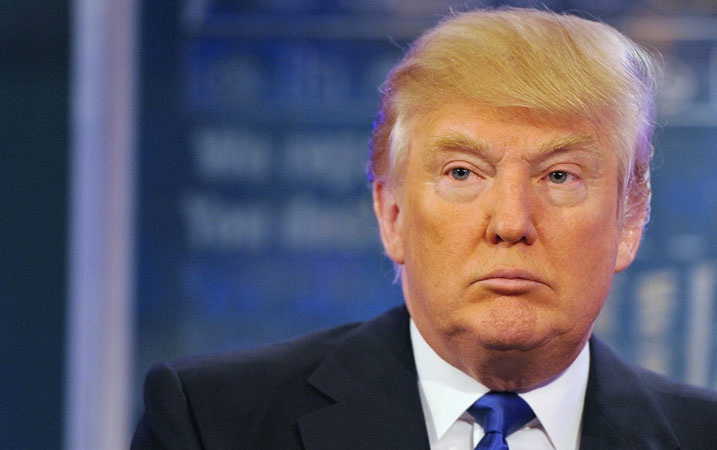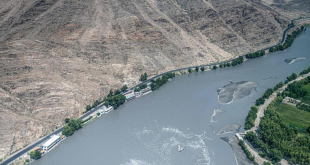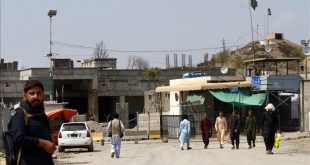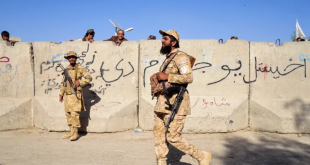By Seddiq Hussainy-“The U.S. must refrain from its past faux pas and preferably concoct a two-pronged ‘solely pragmatic’ modus operandi – dismantle militancy and empower governance and democracy with the same intensity with which it counters terrorism”.
After months of painstaking negotiations with military and political pundits, the U.S. President Donald Trump finally announced his new strategy on Afghanistan – as part of which he is contemplating having to deploy myriad 4,000 surplus troops in the war-weary country. It is very ironic, though, because Trump had talked about a gradual military withdrawal from Afghanistan before and even after he laid foot in the White House.
In fact, Trump had delivered a scathing critique on military presence of the U.S. in Afghanistan. And he is suddenly opposed to a sped military withdrawal, rather sticking to his guns vis-à-vis a prolonged military presence. This shift in strategy is as it appears a long-term plan to counterattack those in animosity with the U.S., to wide out ISIS and al-Qaeda, to prevent Taliban’s grip on Afghanistan, and to avoid an untimely exit from Afghanistan.
Following 9/11, the U.S. garnered a global unanimity on “fighting terrorism” and sanctioned en masse a military attack on Afghanistan. With a quick defeat of the Taliban, an era of ‘government-nation-building’ and ‘deterrence of terrorism’ unfolded. Even countries with anti-U.S. sentiments were in favor of American invasion of Afghanistan. But now, circumstances are quite different.
The new strategy of American statesmen on Afghanistan is bewildered by some challenges: the U.S. is now facing a different era as its presence in the region does not thrill regional stakeholders anymore. The American war strategies in Afghanistan have faltered and Afghan statesmen have not exhibited a collective spirit for fundamental reforms; thus, having spent billions of dollars, the U.S. war on terror in Afghanistan has become the longest insurmountable war of America. It a universally accepted reality that Afghanistan will face a vacuum in security like Iraq and terrorist networks will resurge after a total exit of the U.S., with a possibility of another 9/11 looming. This all served as a sobering reminder for the U.S. to discard its exit policy and devise a new one. The scope of Trump’s new strategy is prognosticated to go beyond boundaries of Afghanistan – as he has also riveted his attention to other countries in the region. He is feared to downplay Pakistan and instead cling to India for a great role in Afghanistan.
Indeed, Trump under the auspices of his new strategy will blame Pakistan for fueling insecurity in Afghanistan and deceiving Americans – failing to hold up its end of the bargain to destroy terrorist hideouts – and will propound Pakistan’s long rival, India, to be his new strategic partner. In the grounds of Afghan game, India will have a broader scope for action and opportunity.
This is a warning for unscrupulous Pakistan. Will they shift their ‘strategic depth’ policy towards Afghanistan? Will they stop supporting and harboring terrorism? A seemingly obvious possibility is that Pakistan is not going to dispose of its sponsoring of terrorist groups as a tool of repression in the region and is highly likely to resort to China after the U.S. stopped its funds. Pakistan will show on sign of abating its assault.
Applying tougher economic pressures on Pakistan and fearing Iran’s delirious interference in Afghanistan, the United States concocted a strategic co-operation agreement with Afghanistan and sought to replace Pakistan with India. We may consider this a shift in Trump’s foreign policy – because it is the first time the U.S. has been so furious over the unscrupulous Pakistan, although it knew about Pakistani military’s clandestine sponsoring and feting of Islamist militant networks and al-Qaeda and didn’t bat an eye. Pakistan’s increasingly acrimonious standpoint didn’t appeal to Trump’s meticulous nature and prompted a sudden shift of focus from Pakistan to India.
Trump’s strategy of lingering militarization will augment probability of a protracted bickering and political rivalry, because it will arouse Pakistan to get close with China. This will enchant Beijing too to welcome Pakistan’s rapprochement, a dark alignment which will herald a new era of terrorism indeed – because militancy provides a measure of counterbalance to the U.S. influence.
Iran too does not consider its rival’s unfettered ascendency in Afghanistan to its national interests and conceives the U.S. military presence near its borders a threat of magnanimous proportions. Iran had no disagreement with the U.S. toppling of the Taliban but Americans’ prolonged stay was in its disagreement. That fear deepened following the proclamation of the U.S. new strategy on Afghanistan.
China too could seize the chance to widen its diplomatic relations with Pakistan in pursuit of downgrading the U.S. role in Afghanistan. At the core of Beijing’s Afghan-Pak policy lies clandestine strategic tendency to pay Pakistan and its delinquent Islamist extremist groups to counter-balance the U.S. military inclinations.
Nonchalant Russia’s Vladimir Putin has thumbed his nose at the White House’s new strategy. With Russia’s expansionist ideological mindset, the possibility cannot be ruled out that Kremlin could fete the Taliban – and possibly ISIS militants – to foment guerilla operations as a pressure tool to retrograde the U.S. regional hegemony and war-mongering maneuverings in the region. Entangled in a whirl of an unending war through no fault on its own, Afghanistan has become a vista for continued political rivalry as Russia wants to expand its own hegemony here and most certainly a prolonged U.S. military presence in Afghanistan is at odds with its neocolonialism paradigm.
From a domestic perspective, Trump’s new strategy delivers a less optimistic outlook – because he merely reflected on annihilation of the Taliban hideouts and prolongation of military presence in Afghanistan, and seldom commented on nation-building, governance and development in the tumultuous Afghanistan. The stark reality is that with Trump’s attention riveted to antiterrorism and militarization, the very quintessential governance and political and democratic foundation is segregated. In the absence of a powerful and democratically stable government, Afghanistan is much likely to become yet again a sanctuary for belligerents and international terrorism. This is an immutable and universal truth, and an idealistic and irreversible outcome that could pose threats to the long-term interests of all stakeholders in the region – the U.S. in particular. The Trump administration must wake up and refrain from its past faux pas and preferably adopt a two-pronged policy – dismantle militancy, and simultaneously empower governance and democracy with the same intensity with which it counters terrorism.
 Afghanistan Times Latest News and Analysis from Afghanistan and the Region
Afghanistan Times Latest News and Analysis from Afghanistan and the Region




